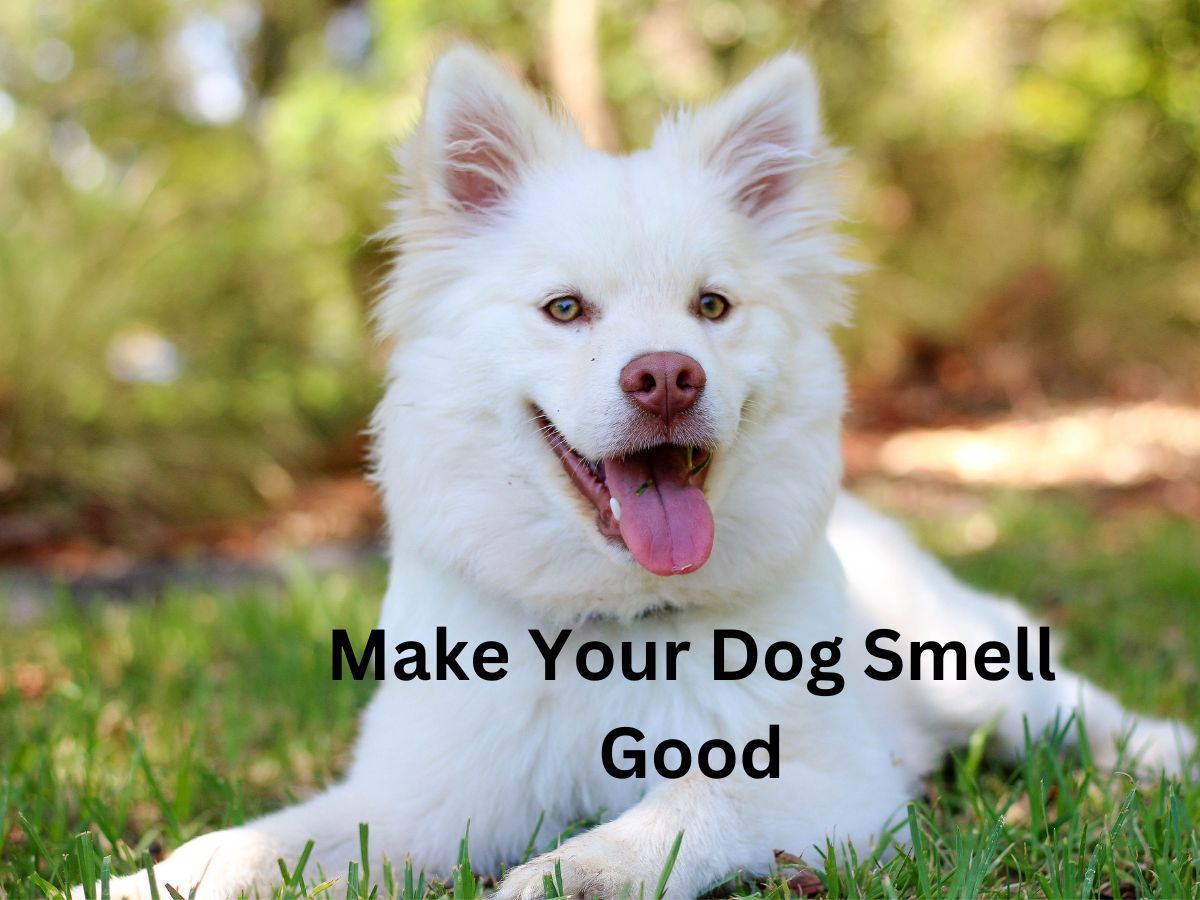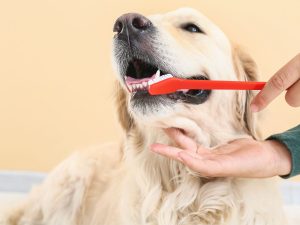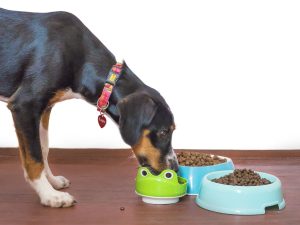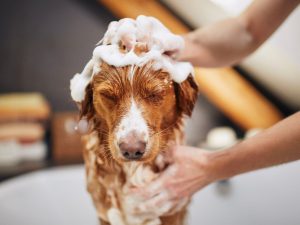Contents
- 1
- 2 Why Do Dogs Smell Bad?
- 2.0.1 1.Skin Problems
- 2.0.2
- 2.0.3 2.Ear Infections
- 2.0.3.0.1
- 2.0.3.0.2 Dogs’ ears are another source of odor, especially in breeds with floppy ears like Cocker Spaniels or Basset Hounds. Moisture and warmth create the perfect environment for bacteria or yeast to grow, leading to infections. If your dog’s ears have a strong, unpleasant odor, it could be time to check for signs of an infection.
- 2.0.4
- 2.0.5 3.Dental Issues
- 2.0.6
- 2.0.7 4.Diet
- 2.0.8
- 2.0.9 5.Anal Gland Problems
- 3 Solutions to Make Your Dog Smell Good?
- 3.1 How Often Should You Bathe Your Dog
- 3.2
- 3.3 How Often Should You Brush
- 3.3.0.0.1 You should brush your dog’s teeth at least two to three times a week. However, if your dog allows it, brushing daily is even better. Regular brushing prevents the buildup of plaque and tartar, which can lead to bad breath and other dental problems. Dogs with existing dental issues may need their teeth brushed more often. If you’re unsure how often to brush, ask your vet for advice. Consistency is key to keeping your dog’s teeth healthy and clean.
- 3.3.0.0.2
- 3.4 How to Clean Your Dog’s Ears
- 3.4.0.0.1
- 3.4.0.0.2 It is crucial to maintain cleanliness in your dog’s ears in order to avoid infections. Begin by utilizing an ear cleaner safe for dogs along with cotton balls. Avoid using cotton swabs because they may cause dirt to be pushed further into the ear. Begin by raising your dog’s ear and softly pouring a small quantity of cleaner into the ear canal. Next, rub the ear’s base to assist in loosening dirt and wax. Let your dog shake its head to get rid of the extra cleaner. Lastly, utilize a cotton ball to remove any debris. Perform the same procedure on the opposite ear. Routine cleaning of your dog’s ears can contribute to their comfort and overall well-being.
- 3.5
- 3.6 How to Brush Your Dog’s Teeth
- 3.6.0.0.1 Brushing your dog’s teeth is an important part of keeping them healthy. First, choose a toothbrush made just for dogs. It should be soft and fit comfortably in their mouth. Next, get some dog-friendly toothpaste. Don’t use human toothpaste as it can upset your dog’s stomach.
- 3.6.0.0.2 Begin by allowing your dog to gradually smell the toothbrush and toothpaste. Next, softly raise their lips and start brushing using small, circular movements. Concentrate on the external areas of their teeth where plaque accumulates the most. Remain patient, and commend your dog with either words of praise or a treat once finished. Consistent brushing can prevent issues like bad breath, gum disease, and other health problems.
- 3.6.0.0.3
- 3.7 Alternatives to Brushing
- 3.7.0.0.1 If brushing your dog’s teeth is too difficult, there are alternatives. Dental chews are a popular option. They help clean your dog’s teeth as they chew and can also freshen their breath. You can also use dog-safe oral rinses, which can be added to their water bowl. Another option is dental wipes. They are easy to use—just wipe your dog’s teeth and gums with them. These alternatives won’t replace brushing, but they can help maintain your dog’s oral health in between brushings.
- 3.7.0.0.2
- 3.8 Natural Remedies for a Fresher Dog
- 3.9 Choosing the Right Food
- 3.9.0.0.1 The diet of your dog can significantly affect their scent. Selecting the appropriate food is crucial for their general well-being and their scent. Top-notch dog food created with all-natural ingredients has the potential to decrease unpleasant odors. Search for dog food containing meat, such as chicken or beef, as the primary ingredient. Refrain from consuming food containing excessive fillers like corn and soy, as they can lead to digestive problems and unpleasant breath.
- 3.9.0.0.2 Certain dogs may develop skin issues and bad odors due to food allergies. If your dog’s skin or stomach is sensitive, consult with your veterinarian regarding transitioning to a specialized diet. Providing your dog with nutritious, well-rounded meals can contribute to keeping them tidy and smelling good.
- 3.9.0.0.3
- 3.10 Choosing the Right Shampoo
- 3.10.0.0.1 When choosing a shampoo for your dog, always pick one made for pets. Human shampoos can dry out your dog’s skin and cause irritation. There are different types of dog shampoos for different needs. For example, if your dog has dry skin, look for a moisturizing shampoo. If they have allergies, an oatmeal-based shampoo can be soothing. If your dog gets dirty often, choose a gentle, everyday shampoo. Be sure to follow the instructions on the bottle and rinse thoroughly to remove all soap from their coat. Using the right shampoo can help keep your dog’s skin and coat healthy.
- 3.10.0.0.2
- 3.11 Supplements for Skin and Coat Health
- 3.11.0.0.1 Supplements can help improve your dog’s skin and coat health, which in turn can make them smell better. Omega-3 and omega-6 fatty acids are great for keeping your dog’s coat shiny and their skin healthy. These can be found in fish oil or flaxseed oil supplements.
- 3.11.0.0.2 Some dogs may also benefit from supplements containing vitamins like E and biotin, which support healthy skin. If your dog’s skin is healthy, they’re less likely to develop odors caused by infections or irritation. Always check with your vet before adding supplements to your dog’s diet to make sure it’s the right choice for them.
- 3.11.0.0.3
- 3.12 How Often Should You Wash Bedding
- 3.12.0.0.1 Your dog’s bedding can hold onto dirt, bacteria, and bad smells, so it’s important to wash it regularly. A good rule of thumb is to wash your dog’s bedding at least once a week. If your dog spends a lot of time outside or has a strong odor, you may need to wash their bedding more often.
- 3.12.0.0.2 Use a mild, pet-safe detergent and make sure to rinse the bedding thoroughly. This helps remove dirt and odors while keeping your dog’s skin safe from harsh chemicals. Clean bedding can make a big difference in how fresh your dog smells at home.
- 3.12.0.0.3
- 3.13 How to Clean Toys
- 3.13.0.0.1 Your dog’s toys can get dirty and smelly over time, especially if they chew on them a lot or take them outside. To keep your dog smelling good, it’s important to clean their toys regularly. For hard toys, like rubber or plastic, you can wash them with warm soapy water, rinse well, and let them air dry.
- 3.13.0.0.2 Soft toys can often be washed in the washing machine, but be sure to check the care label. Keeping toys clean will prevent the buildup of bacteria and dirt that can lead to bad smells. Clean toys also help keep your dog’s mouth and teeth healthier.
- 3.13.0.0.3
- 3.14 Hydration and Water Intake
- 3.14.0.0.1 Proper hydration plays a key role in your dog’s overall health and can also affect how they smell. Dogs need plenty of fresh water each day to stay hydrated. When your dog drinks enough water, it helps flush out toxins from their body, which can reduce bad breath and odors. If your dog doesn’t drink enough water, their urine may smell stronger, and their skin can become dry, leading to unpleasant smells. Make sure your dog always has access to clean water, and encourage them to drink more by keeping their water bowl fresh and full throughout the day.
- 3.14.0.0.2
- 3.15 Professional Grooming
- 3.15.0.0.1 Taking your dog to a professional groomer can help keep them smelling their best. Professional groomers have the tools and skills to give your dog a deep clean, including washing, trimming, and brushing their coat. They can also clean your dog’s ears, clip their nails, and check for skin issues.
- 3.15.0.0.2 Groomers use special shampoos and conditioners that are designed to keep your dog’s coat soft and fresh. Regular grooming appointments, every 4-6 weeks, can help reduce bad odors and keep your dog looking and smelling great.
- 3.15.0.0.3
- 3.16 Regular Exercise
- 3.16.0.0.1 Regular exercise is important for your dog’s health, and it can also help keep them smelling good. Exercise helps your dog maintain a healthy weight and improves their circulation, which supports skin health. Dogs that are active tend to have healthier coats and less skin irritation, both of which can reduce bad smells.
- 3.16.0.0.2 After exercise, be sure to wipe your dog down or give them a quick bath if they’ve gotten dirty or sweaty. Exercise also helps with digestion and can reduce smelly gas. A fit, healthy dog is more likely to smell fresh and clean.
- 3.16.0.0.3
- 3.16.1 1. Can I use perfume on my dog?
- 3.16.2 2.How do I keep my dog’s bedding from smelling bad?
- 3.16.3 3.. How can I naturally deodorize my dog?
- 3.16.4 4.How can diet affect my dog’s smell?
- 3.16.5 5.What shampoo is best for my dog?
- 4 conclusion
- 4.0.0.0.1 Keeping your dog smelling good involves more than just occasional baths. Regular grooming, proper diet, dental care, and attention to their overall health are essential for maintaining their freshness. By following the tips in this guide, you can ensure that your dog stays clean, comfortable, and pleasant-smelling all year round. With the right approach, your home will stay fresh, and your dog will look and feel their best.
- 4.0.0.0.2




